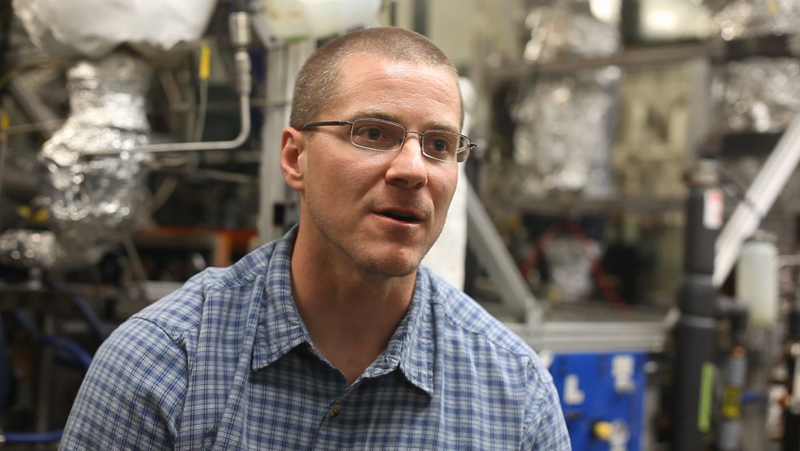
PLEASE NOTE: In compliance with campus COVID-19 policy, this seminar will be offered online only.
To receive a link to the online seminar, Register here
- (on the next page, be sure to click the "Register" link toward the top of the page or the "Register" button at the bottom of the page)
In this Sustainable Energy Seminar, David Rothamer, Associate Professor of Mechanical Engineering, will discuss opportunities to co-optimize the design of diesel engines and biofuels to minimize environmental impacts.
Abstract: Diesel engines remain one of the most efficient prime movers and will continue to be used for transport of goods, for off‐road equipment, and for shipping for the foreseeable future. Environmental impacts from these activities must be minimized. One approach to doing this is through the use of renewable fuels with low net-GHG emissions. Further benefits can be achieved through co‐optimization of fuel properties and engine design and operation. The co‐optimization of engine and fuel requires an understanding of the impacts of fuel properties on the spray and combustion processes in Diesel engines. Previous metal- and optical-engine experiments have given a fuller picture of changes to the spray and combustion, and the subsequent impacts on engine performance and emissions for fuels with widely varying properties. This has informed current work focused on co-optimization of a diesel bioblendstock and diesel engine operation at cold start conditions. Results from these studies will be presented and paths forward for further co-optimization of engines and fuels will be discussed along with other ways in which future fuels may enable significant reductions in GHG emissions.
